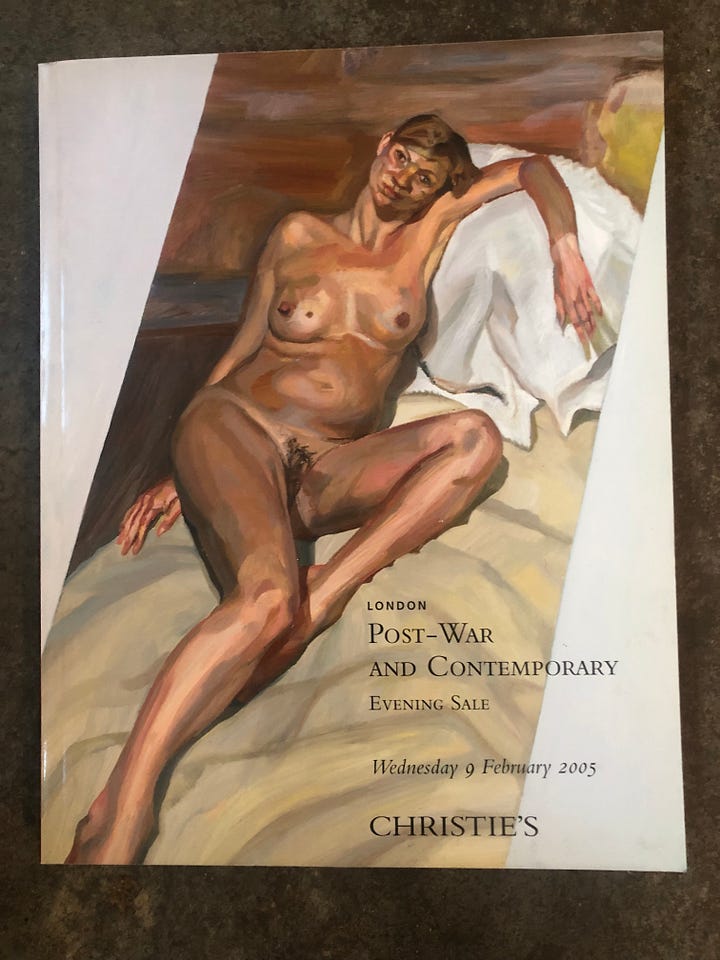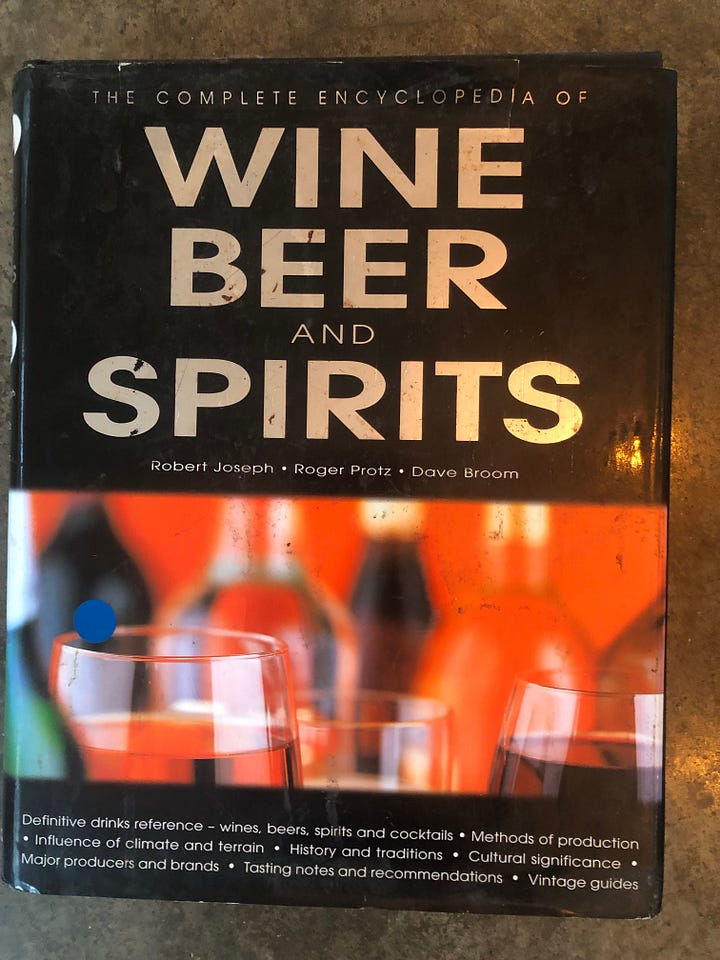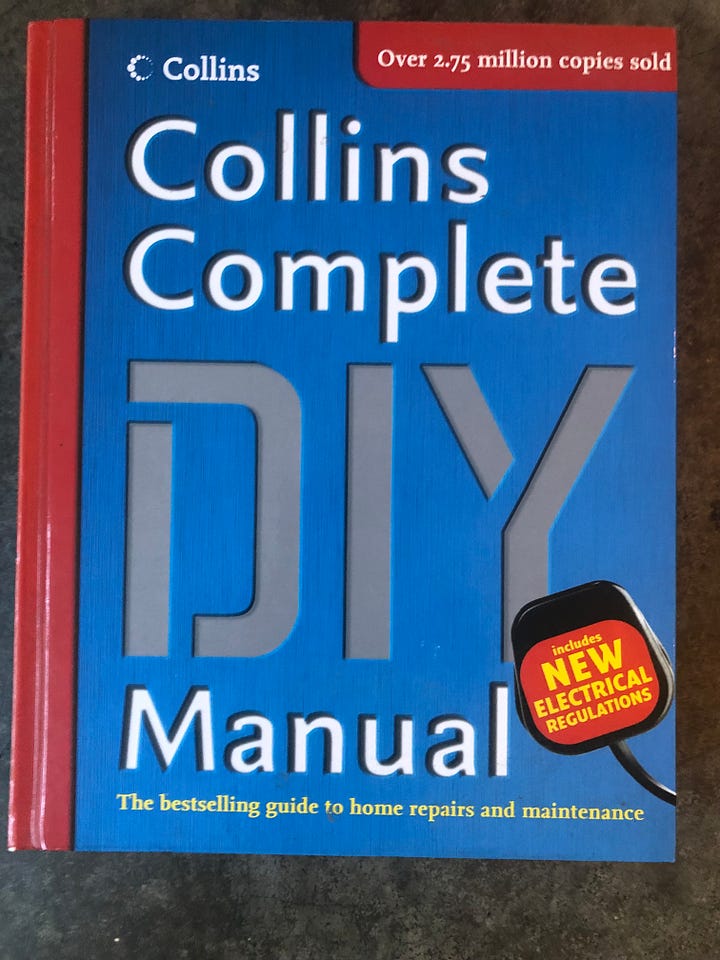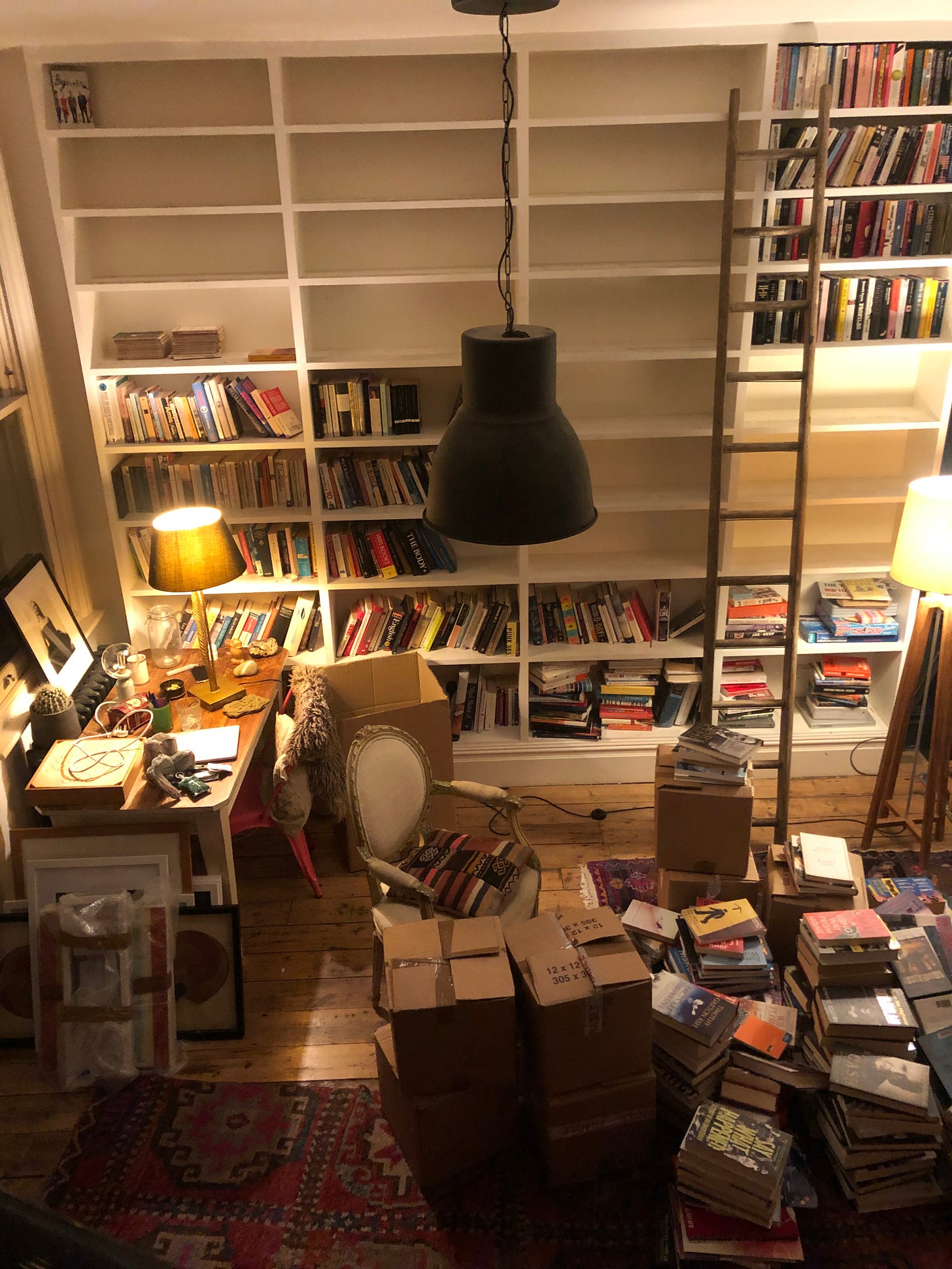



I’ve spent the past three days sorting through books. It’s exhausting work, back-aching, sneeze-inducing, overwhelming but also: food for thought. In addition to being stunned that that a single household could inexplicably acquire seven separate copies of Tony Parson’s Man and Boy (why? why?!) the thing I’ve marvelling at most is how the relevance of many books today seems to run in inverse proportion to their size.
Dictionaries of quotations, for instance, atlases, encyclopaedias, guides to common usage, auction house art catalogues, manuals for wine-tasting and DIY — these were the books that educated folk invested in, sometimes ordering leather-bound collections with gold dusted pages from dapper door-to-door salesmen bearing catalogues.
There is, I think, something tragically noble about the books that we once turned to in search of experiences or practical knowledge that could not be had without hassle and expense — a plane ride to Paris and a ticket to the Louvre or enrolment in a dreary night school course (remember those?). Because I am contrary by nature, I have a soft spot for the volumes we once sought out in order to look at far-away masterpieces, rare photographs or film stills, the books we consulted on how to throw a dinner party, decorate a bathroom or master a specific odd job.
Unlike the Penguin paperbacks and Picador pockets (which, counter-intuitively, seem to have withstood the test of time judging by their tattered loved-up-ness on my shelves), it’s the big books, the ones with hard heavy covers, pictures and ponderous indexes that have proved a truly dying breed. In their hey day, big books cost big money because their “content” was considered “evergreen” (although we didn’t use such ghastly terms back then), what they had to teach us was impervious to fashion. They were made to last, which back then meant big. These books break my heart because they seemed a sure investment in a time when surety meant something. I’m sad for them, for me, for the world, that it did not work out.
The generations of people who bought these books en masse predate me, but I’ve inherited dozens along the way. Big books are still everywhere, they’re still being printed, but they’re curiosities now, art objects, luxury items essentially. Left on a coffee table they might be leafed through occasionally, vaguely admired, but no one would climb a ladder to seek them out. No one needs them. For that reason alone I can’t bear to throw them out.
I’m old enough to vividly remember a time when the only way to really learn about anything in the world was to read about it in a book. In order to do that you had to find it first. And that book hunt, whatever form it took, followed by the sense of discovery when you found it was a pure anticipatory delight. I say anticipatory because laying your hands on the book you yearned for wasn’t the end of the story but the beginning. So many great novels and movies begin this way: A bewildered child in an attic or a lost student in a library pulling a volume from a shelf, blowing dust off its pages, flipping through it, wide-eyed. The books is then checked out, stolen or smuggled, tucked under an arm and taken home. The real narrative begins the moment reader (or narrator) settles down in an armchair and cracks spine. This is called “curling up.”
I don’t care what anyone says, you can only truly curl up with a book.
It’s bone-headed to moan about the internet; I try not to do it. It’s too unfathomable and miraculous for that— griping about digital culture is like complaining about “men” or “society” or “religion.” The internet is so many things to so many people, it’s impossible to generalise about without sounding incurious and stupid. Not that it stops people from doing it. They do it all the time. This is why I rarely go to dinner parties.
Having said that, I do allow myself a quiet moment from time to time, to mourn the small pleasures lost. It’s not the books themselves I miss — three decades into the so-called digital revolution and I’m drowning in them (see pic below) — but rituals that accompanied books, in particular big books, back when they were the only delivery system for acquiring the knowledge we wanted and needed most.
Once I get through sorting: I’m curling up.






How cool is it that you have a book shelf with a ladder! He exclaimed lustfully. My first big purchase (before dishwasher, bedroom furniture, freezer, colour television) when I moved into my first house was a custom made, self designed, wall size, floor to ceiling bookshelf. As a boy I had dreamed of a house with an actual library room (I'm still wishing for this), so a whole wall covered in books was the next best thing. I never thought of it as a luxury, no, rather a necessity. Books are where I go for information, stimulation, entertainment and inspiration. The beautiful oak sectional book case is now with my middle son as I have downsized in retirement. If you open a conversation about the value of public libraries, you'll get an earful from me. I'm sure my only regret when I die will be that I didn't have enough time to read everything I wanted to. I'm proud to be a bibliophile.
I’m all about books, and I typically spend hours a day with one, but in my ears. Audiobooks for the last 15 years or so are my jam, and my Digital Library would fill many shelves if exchanged for their printed twins. I miss not organizing and categorizing my library post transition, and enjoying the sight of them neatly lined up on a shelf. but the pleasure I take in multi-tasking gardening or washing the dishes with a first class murder mystery set in Victorian England while my hands are also busy make up for it.